Welcome to another issue of The Newport Cornucopia where we dig through the newspapers archives for interesting news articles and adverts. All articles are posted verbatim and most headlines are original (headlines in quotes are my own).

Potato Planting
The piece of ground lying between the South Wales line and the Bridge turnpike-gate, has been planted with potatoes by Mr Martin Haynes, seedsman and florist, in the Irish manner, in close ridges upon the grass, with deep trenches every five feet apart, cut up, and thrown with manure, upon the potatoes. It is a neat mode, and is said to promise a good crop.
— Monmouthshire Merlin, Saturday 18th May, 1850
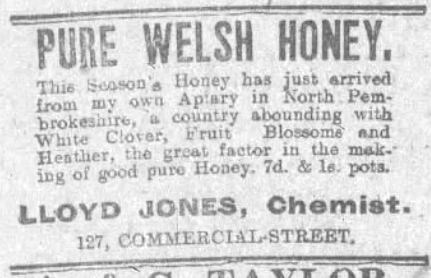

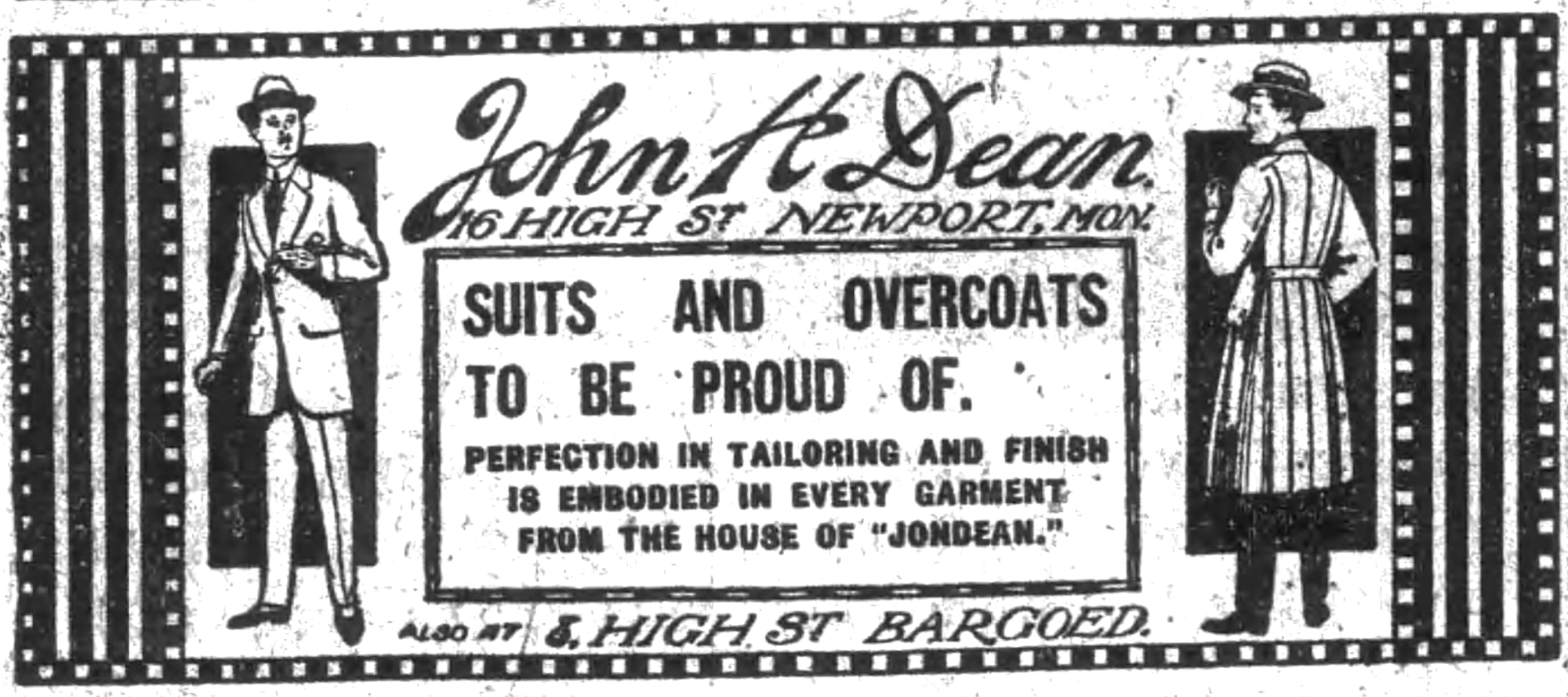

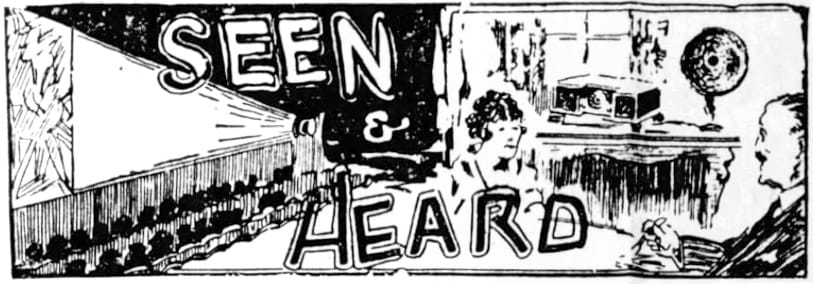
'Throwing Cardboard'
Newport police might well attempt to put a stop to the dangerous practice of some of the street boys of throwing squares of cardboard into the air and chance to luck where they fall. One piece struck a cob in the chest in High Street on Thursday, and it was only a firm hand and a tight rein that prevented what might easily have been a serious accident. The police carry little canes, and the application of the said canes to a certain part of the youthful offenders' anatomy would be a wholesome corrective.
— South Wales Argus, Saturday 25th August, 1900
'Baneswell Cats'
If I lived in Tunnel Terrace, Newport, I might be accused of serving my own interests by referring to the necessity for a little reformed paving; but as I neither live there nor pass that way, except occasionally, I can with an easy conscience call the attention of our City Fathers to the uncomfortable condition of the footpath.
In many places it is uneven, in some places the paving stones are missing altogether. What has become of them is a mystery, unless the irate residents have caught them up to hurl at the cats which in that particular neighbourhood are more abundant than babes in Blewitt Street.
— South Wales Argus, Saturday 14th July, 1894
The Peppercorn Tax
There is, I hear, a survival of the Peppercorn tax in Newport. The inhabitants of houses in Park Square pay a yearly tax of 1s which is still called the Peppercorn tax — although, of course, not paid in peppercorns.
— South Wales Argus, Saturday 14th July, 1894
'St Woolos Parish'
I wonder if any parish in the United Kingdom held it's parish meeting under circumstances comparable with those surrounding that most important gathering for the rural parish of St Woolos. I don't suppose there is another parish occupying the same position as this one, as we have said before, it has no church and no school, no public house and no policeman.
— South Wales Argus, Saturday 4th April, 1896
'Turning the Lights Off'
Upon the representations of the head constable, the committee whose special function it is to look after the lighting of Newport, have considered the question of switching off half the electric lamps at midnight. The police say there was an attempt at burglary in Llanarth Street one night when the lamps were out, and they very properly argue that from a police point of view it was desirable that no part of the town should be in darkness.
— South Wales Argus, Saturday 11th July 1896
'Newport Fire Brigade'
Newport Fire Brigade had an opportunity this week to prove what a smart and really efficient body of men they are. On Thursday evening a fire broke out at Pontynewydd, and at 5.40pm the alarm was given to Newport. In 13 minutes the brigade had covered the distance of 5½ miles and were fighting the fire, which was subdued in ten minutes. Owing to the splendid work of the Brigade the damage was very slight.
— South Wales Argus, Saturday 7th February, 1920
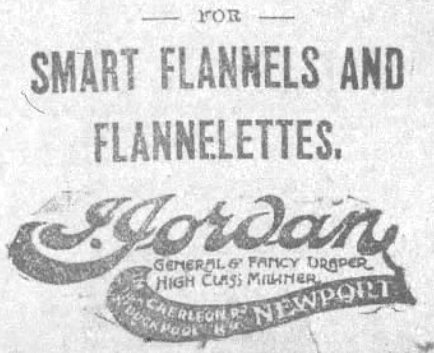
A Fine Steer Slaughtered
On Thursday last a fine steer was slaughtered by Mr Kite, butcher, of Caerleon, which was much and generally admired for its superior quality and yield. The animal produced 126lbs of rough fat, and the weight of the carcass was 8cwt. It was not three years old and fed on the farm of John Jenkins, jun, Esq., Hendrew, near Penhow. The beast was fed on cut wheat straw, and swede turnips (prepared by Gardiner’s patent machine) with 3lbs of oil cake per day; not a single ounce of hay had been given since November last. This fact clearly proves the utility of close attention to feeding upon a judicious principle, particularly at a period like the present, when “keep” is so seriously high in price. The steer above alluded to is one out of several from the same stock and farm, and fed in the same way, that have died under the hands of the butcher, with equally profitable results.
— Monmouthshire Merlin, Saturday 26th April 1845

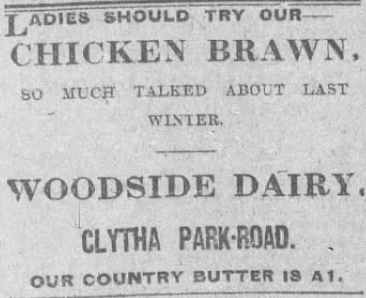

Dutch Fair by a ‘Licensed Hawker’
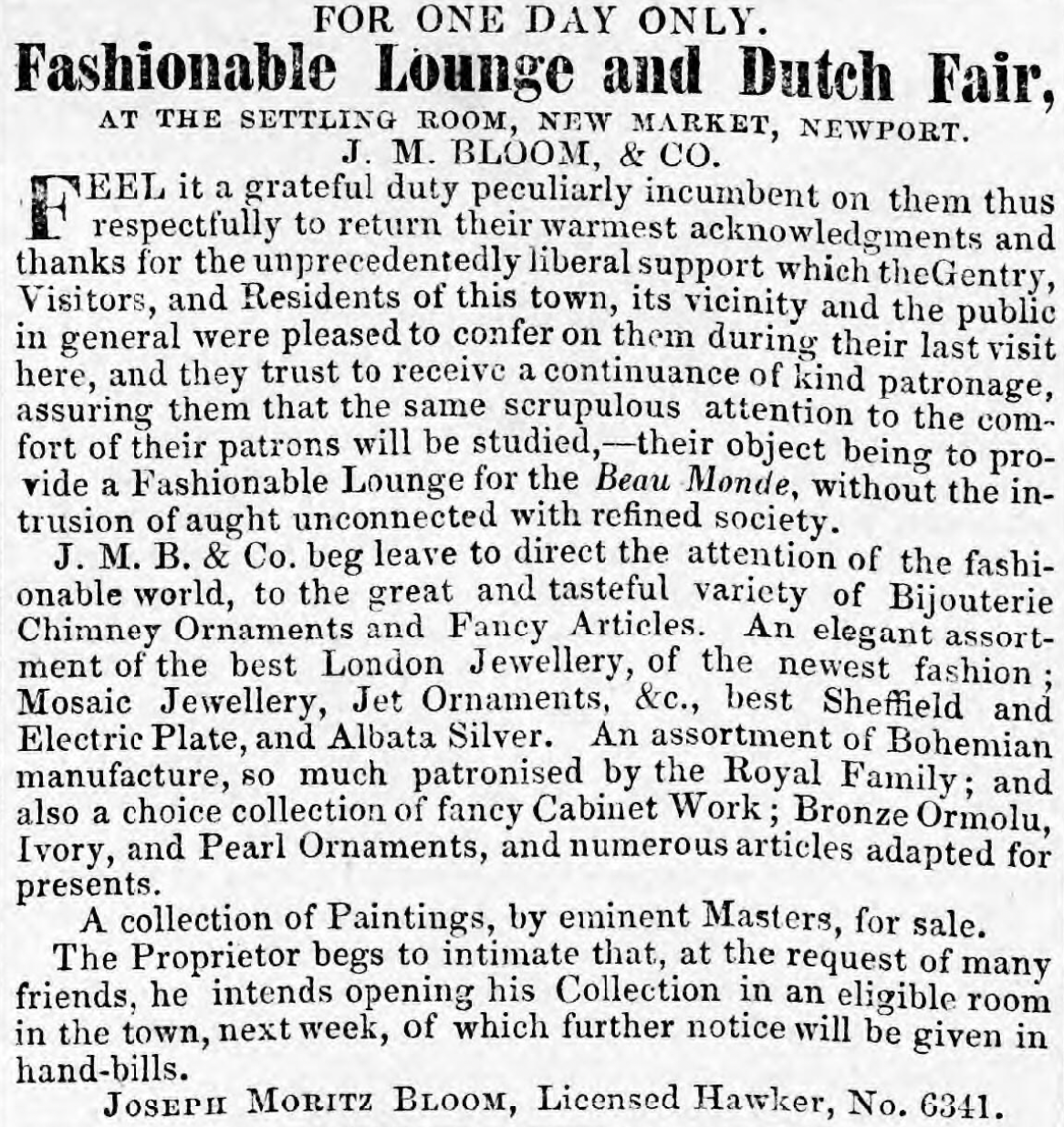


James Haggett, Lion Inn, Magor, was charged with drawing liquors in his house on Sunday, the 27th ult., between the hours of ten and eleven o’clock. Henry Trimble said: I am a schoolmaster, residing at Magor. The school is kept in a room rented from the defendant. About nine o’clock on Sunday morning, I went to Mr Haggett for the key of the school room: it was not to be found. I saw Mr Haggett’s sister drawing liquors for some men who were in the house. Afterwards, I was leaving the house, when I saw two men in the porch drinking — one of them asked me to drink, which I refused to do. The school has been interrupted, and I have seen men drunk in the stable. I consider my life is in danger, the defendant having threatened that he would be revenged on me. The constable said he went into the house about ten o’clock, and there was no one drinking at the time. Defendant, in reply, said he had not drawn any liquors on Sunday morning, for he was not up at the time named, neither had he threatened the complainant, who had brought this charge against him from vindictive feelings. Mr Phillips here said, that he was in the habit of frequenting the defendant’s house and had always seen it peaceably and properly conducted. The Rev. T. Pope said he had heard quite the opposite character of the house, and cautioned the defendant to manage his business better in future, which he promised to do. Fined 40s and costs.
— Monmouthshire Merlin, Saturday 8th June, 1855
Stow Fair Crimes
Stealing a Ham
Sarah Jones was charged with stealing part of a ham, from Hannah Ion, in A booth at the fair. Complainant said: I bought the ham for the purpose of supplying refreshments at the fair. About three o’clock in the morning, the ham was on a dish under the bar of the booth: the prisoner came in and inquired where Henry (meaning a man complainant lived with) was. Her attention was just then called to a man who ordered a pint of beer, when prisoner instantly took the ham, handed it to a man, and made off. The ham weighed 13½lbs, and I had sold about 3s worth. Afterwards I saw her in a booth, and gave her custody. PC Thomas Fly said he took the prisoner into custody in a booth in the fair. She had no ham with her. Defendant denied having seen the ham at all, and was committed for trial.
— Monmouthshire Merlin, Saturday June 8th, 1855
More Ham Stealing
Daniel Holland, 15, an old offender, was charged with stealing part of a ham in the fair. PC Gould said: this morning about five o’clock, I was on duty in Hill Street. The prisoner passed, and I saw he had something he wished to conceal. I caught hold of him, and found the piece of bacon produced. I then took him to the station, and afterwards made inquiries at the fair, and found that Mrs Quick had lost such a piece of bacon.
Mrs Ann Quick said: I am the wife of John Quick, currier, and beer-house keeper. In consequence of my husband’s illness, I had to attend the booth at Stow Fair, where I sold refreshments. While I was getting some ginger beer, the piece of ham was stolen; but I did not see the boy take it. I am certain this is the piece of ham that I lost, although a large piece has been cut off it since.
Defendant, in answer to the magistrates, said he was guilty of having the ham in his possession, but denied having stolen it. He had picked up in the fair, where it had been kicked about in the dirt. He had been convicted before, for coal stealing; but this he was driven to do, as he was starving in the winter, and his father would not find him food.
The mother, who was in court, was said to be a known bad character, living apart from her husband, with another man. She said the boy was one of four that the father (her husband) had promised to maintain; but he did not do so, and if the magistrates would forgive him, she would take him with her to Cardiff.
The boy was ordered to be imprisoned for six weeks, and be once whipped. On hearing the sentence, the boy held up his hands imploringly to the magistrates, begging them to forgive him.
— Monmouthshire Merlin, Saturday June 8th, 1855
11-Year-Old Imprisoned and Whipped for Stealing Coal
William Morgan, aged eleven, was charged with stealing coal, the property of Red Ash Coal Company. William Sherrard, a watchman, saw the prisoner take the coal from a truck. This was the boy’s third appearance before the magistrates. To be committed to prison for one month, and to be once whipped.
— Monmouthshire Merlin, Saturday June 8th, 1855
Mary Ann Evans, a character, who recited poetry, was brought up because she insisted on having a night’s lodgings at the police office. Discharged, on promising to leave the town.
— Monmouthshire Merlin, Saturday June 8th, 1855
Wife of a ‘Cheap John’ Steals Neck of Veal
Mary Hayewood, the wife of a “Cheap John” was charged with stealing a neck of veal, the property of Hugh Morgan, at half-past ten o’clock on Saturday night. A young man belonging to the shop saw the felony committed. The prisoner was committed for trial.
— Monmouthshire Merlin, Saturday June 8th, 1855
Mother! Mother! I’m Dead, I’m Dead
Jeremiah Crook, John Allen, John Collins, Thomas Neill, and John Cockery, a gang of mere children, were charged with plundering the garden of Captain Foote, at the Dock, on Sunday evening last; and Crook was charged with stealing lead, from Trinity church.
They had all been previously “in trouble," and at the bar. Sergt. Long, of the Dock force, gave evidence against the urchins; all except Crook were severely cautioned and discharged. Crook for stealing the lead, was sentenced to one month’s hard labour and a private whipping. When he heard his sentence, he cried out piteously, "Mother! mother! I'm dead, I'm dead.
— Monmouthshire Merlin, Saturday 22nd June, 1855
Assaulting a Woman Names ‘Friends’
Sarah Watkins, an interesting-looking widow, from the questionable neighbourhood of Friars’ Fields, was charged with assaulting a woman, named Friends. One party appeared to be as bad as the other; the case was dismissed.
— Monmouthshire Merlin, Saturday 29th June, 1855
Drunks in Court
John Watkins was charged with being drunk, last night. John said, “No, I was sober as a Judge, sure. (Laughter). PC Jenkins proved that Watkins was thoroughly drunk and cursing at nothing. Fined 5s.
John Brown was charged with being drunk and incapable, on Sunday. Brown: It’s right enough that I was drunk yesterday, and I should be today, if I had any money. I be one of Mr Rennie’s men. Fined 5s.
Ann Lewis was charged with being drunk and disorderly at Pillgwenlly; and she admitted that it was true. She had been fined at Cardiff for the same offence. Fined 5s. “Thank ye, sir”, said the girl, impudently.
— Monmouthshire Merlin, Saturday 29th June, 1855

Finest Strawberries


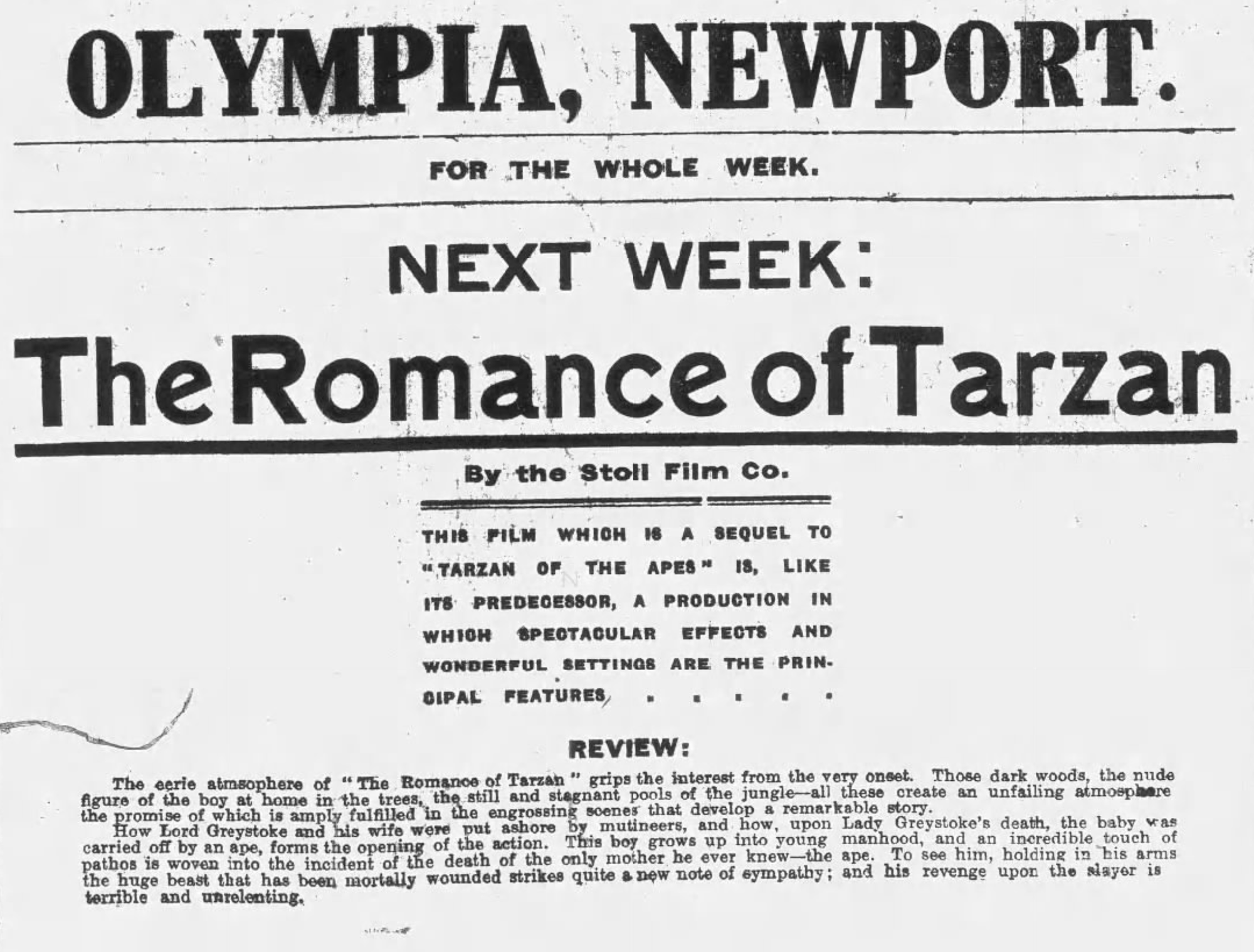
Sewerage of Newport
Sir—As I gather from the proceedings given in your paper of last week, that the sewerage of Newport is quite as good as is needed, and therefore it was that your sweet town was spared the visitation of cholera, when it last stalked abroad amongst us, may I suggest that it really is, in some sense, too good, and that it would be well to stop up a drain now in existence.
In walking along the Marshes-road, last week, my olfactory was assailed, not by odours sweet," certainly, but by marvellously unpleasant smells and as I cast a glance over the broken hedge, I was surprised to see the open reen along the road-side converted into a green mass of putrescence, stagnant and pestiferous. In my younger days, a stream of limpid water was wont to run through this ditch; but in its present state, it certainly is a hot-bed of corruption, and, in warm weather, must form a charming frontage for the houses over the way.
"Over the way" I returned to town, to avoid the sight of the foetid corruption but over the way" did not take me from the stink of the filthy mass. My suggestion is, to stop up this drain—thereby adding to the salubrity of your town. There need be no cost of engineering, in carrying out this plan and probably there will not be so great an objection to stop up an old drain as to open a new one. Corporations, I am quite sure, do not like the coat and trouble of new works but probably they may have much slighter objections to the getting rid of old ones their liabilities are decreased, and their LINE of duty becomes more circumscribed.
SOMEBODY
— Monmouthshire Merlin, Saturday June 8th, 1855

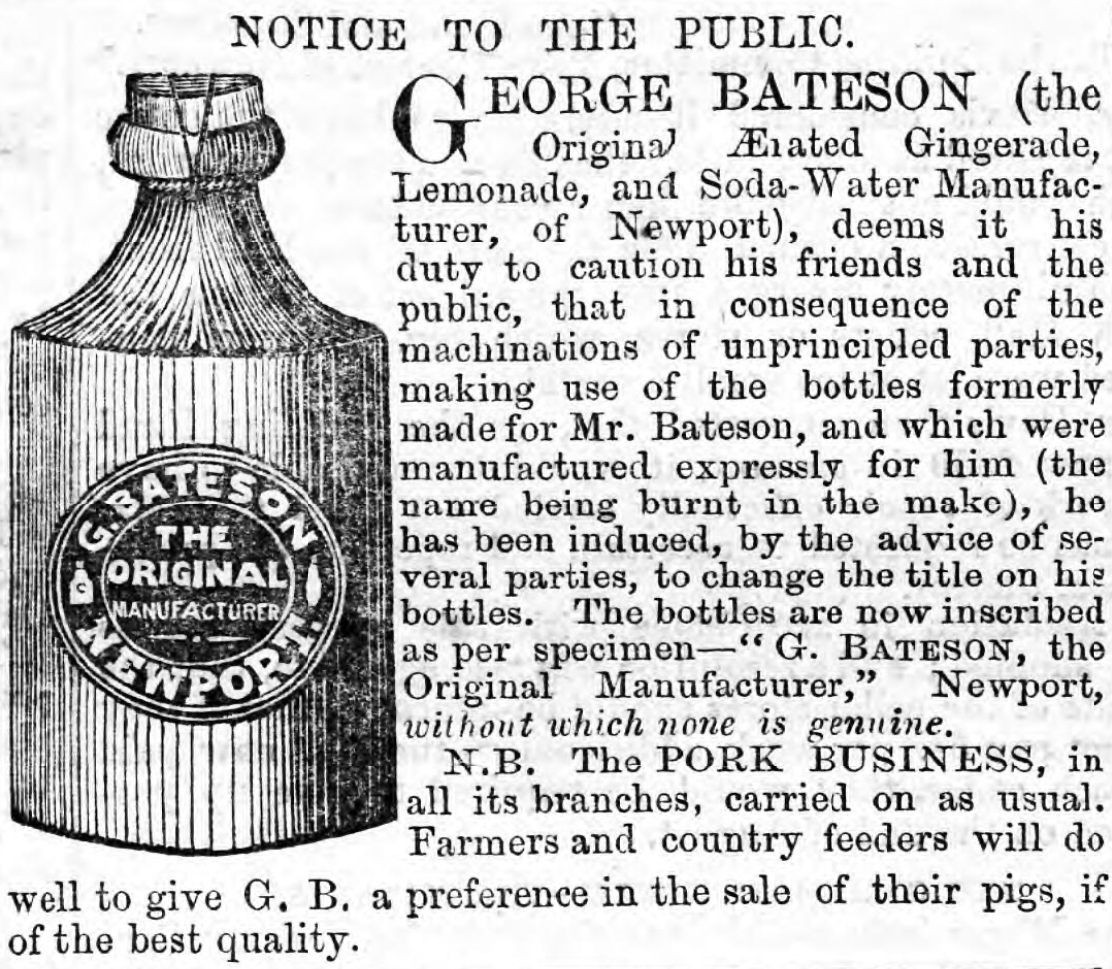

The Pleasures and Perils of a Day at the Holms
Seldom as the good folk of Newport participate in marine excursions, there are occasions when some few determine to enjoy a run down our noble river, and across to the Flat or Steep Holms, or the picturesque watering place, Weston-super-Mare. An excursion of this kind, previously announced in the MERLIN, and by handbills, took place on Monday last, when the Fearless tug steam-boat was engaged by Mrs. Cripps, to convey a party of pleasure-seekers from Newport to the flat island keeping solitary watch off Cardiff.
The morning was hazy, with scudding winds, rather portentous of a “wet sheet and a flowing sea;” but, nothing daunted, and as "fearless" as the tug, the excursionists started from the Rodney Wharf at about half-past nine. Harp and violin players entertaining the party with enlivening airs. At the Dock gates, a considerable accession of numbers took place, and the Fearless steamed away for her destination.
The island was reached in due time, and a landing by small boats easily effected. A variety of sports soon occupied the party. Some few sportsmen, armed with deadly weapons, started in search of rabbits others wended their way to the inn (where capital accommodation was afforded throughout the event) — others to the lighthouse; and, although many showers fell during the day, there was scarcely any cessation of dancing and other healthful pastimes. The party was increased during the afternoon, by a number of ladies and gentlemen who arrived from Newport in No. 10 pilot-boat—the yacht-like “Bloomer," belonging to Mr. Ray, jun.
Towards evening, the startling intelligence was spread that the pilot-boat and steam-tug could not be approached in the small boats, owing to the heavy sea running, and a night on the island seemed inevitable. At length, however, amidst rain and fierce winds, the party struggled down to the beach, and there witnessed quite sufficient to shake the nerves of timid ladies and delicate gentlemen—worse still, there was no prospect of the sea becoming less boisterous; so, after long and impatiently sitting about upon the crags, a boat-load of 'gentlemen ventured off. Their passage to the steamer was a succes- sion of tumbles and leaps—the boat being knocked about mercilessly by the waves. A second boat-load was about to start, when a billow dashed the frail craft broadside on the beach and threw her freight overboard—fortunately in very shallow water. After many similar adventures, however, amid the screams of the ladies, and expressions of great alarm from some of the gentlemen, the party at length boarded the tug and pilot-boat; when the homeward trip was commenced—the Bloomer dashing ahead of the Fearless in gallant style, and keeping the lead for several miles. Ultimately, however, the Bloomer thankfully accepted a warp from the Fearless; and thus a pleasant companionship was enjoyed to the Newport Dock, where, and at the Rodney Wharf, the excursionists having had enough of a water trip for some time to come,"—touched terra firma with much pleasure, and hied to their family circles, to narrate the pleasures and perils of their excursion to the Holms.
— Monmouthshire Merlin, 21st July, 1855

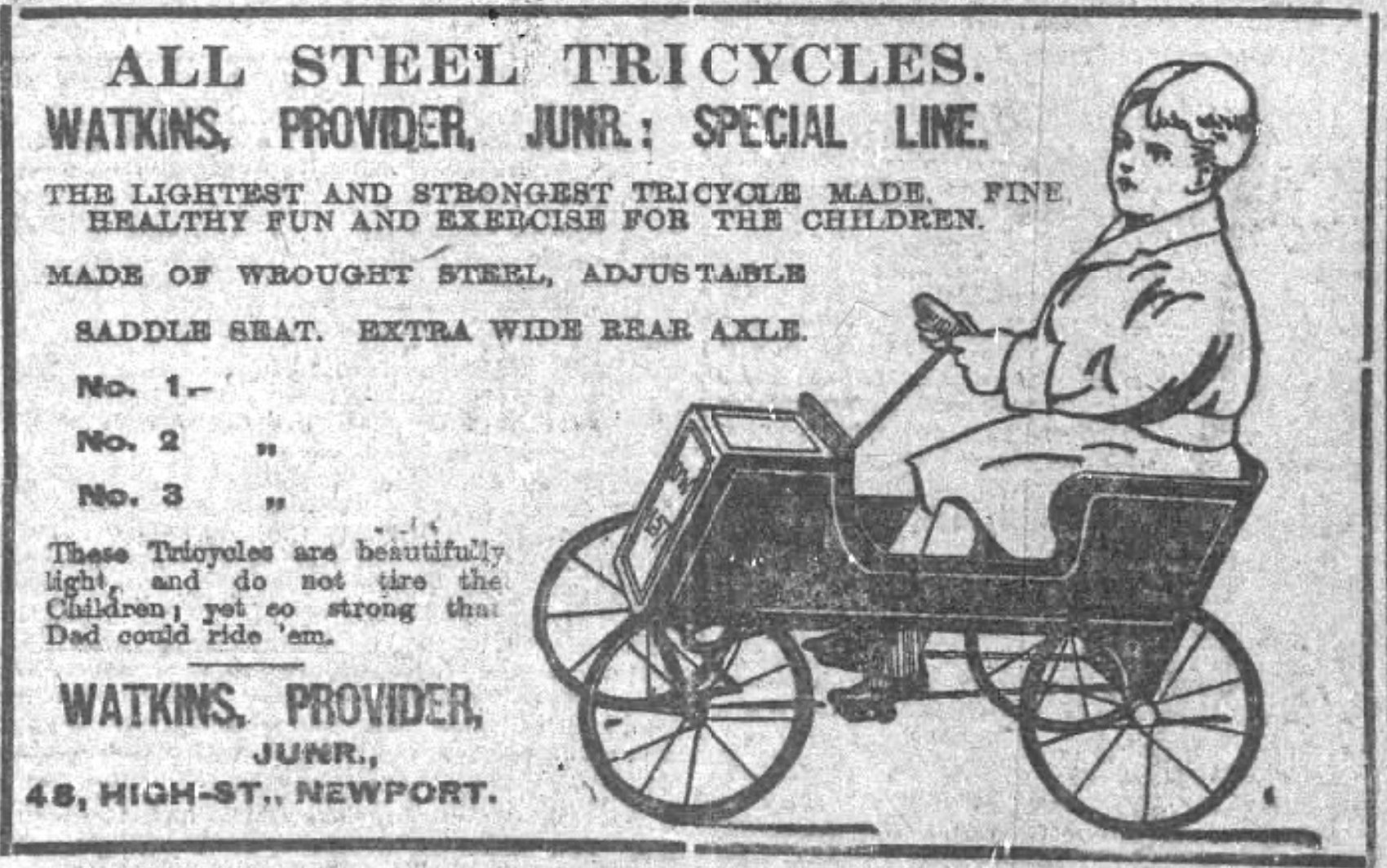

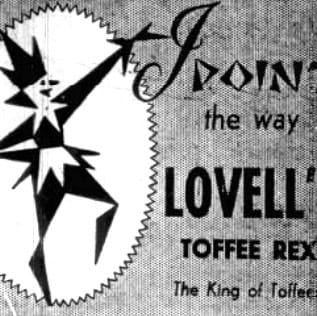
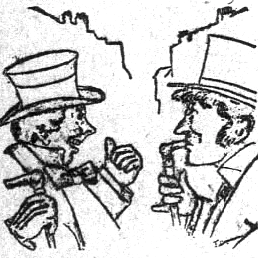
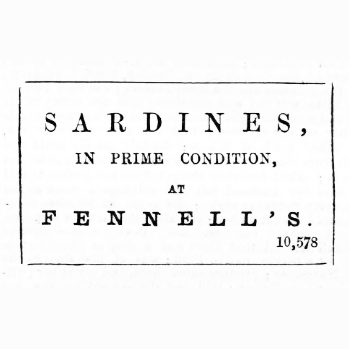
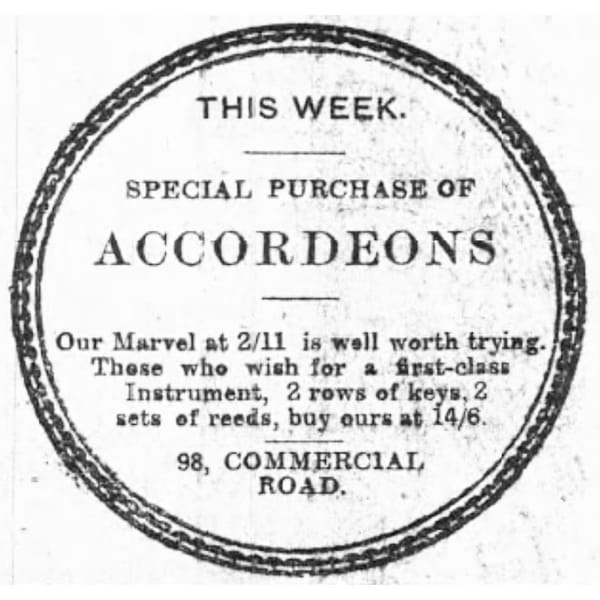
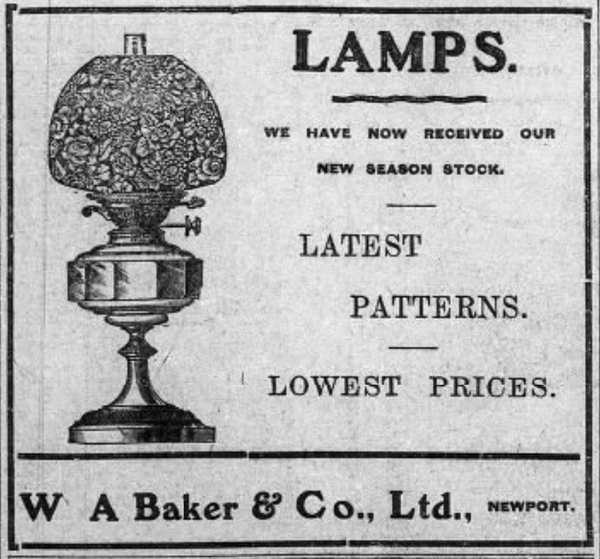


Member discussion